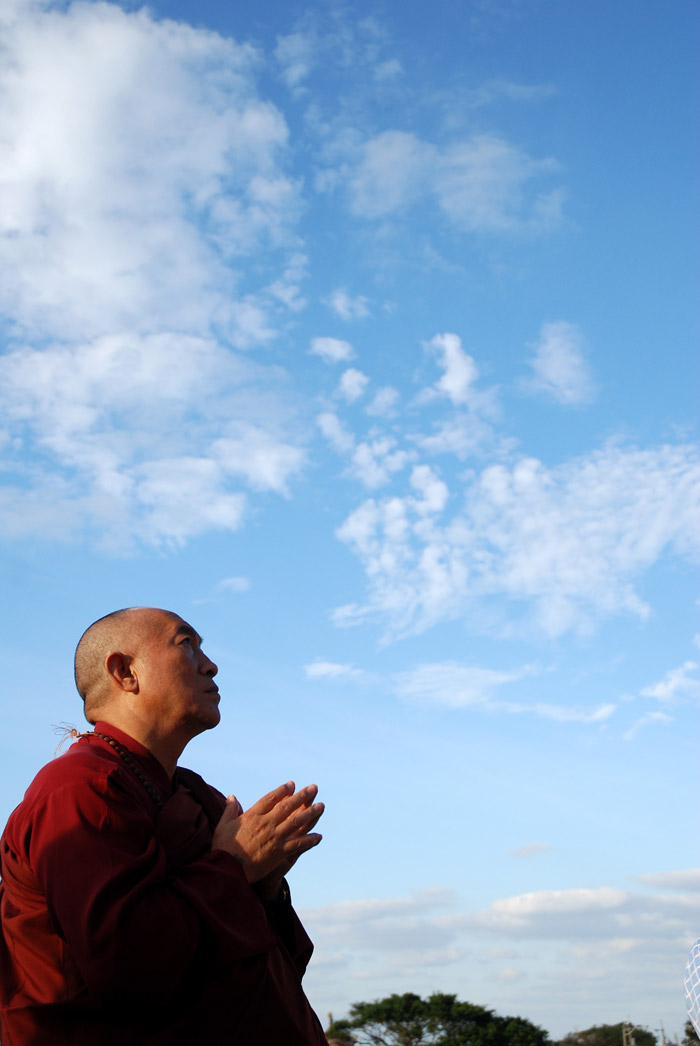Tradition and Practice
 Master Hsin Tao’s Dharma talk at the 2009 Summer Camp.
Master Hsin Tao’s Dharma talk at the 2009 Summer Camp.Passing on the teachings of compassion: Taking compassion as a precept, refraining from harming any sentient being.
Putting the teachings into practice: The Dhāraṇī of Great Compassion; making offerings to the hungry ghosts; the Avalokiteśvara gaṇacakra; the Water-Earth Repentance Ceremony.
Ling Jiou Mountain is based on compassion and meditation. Compassion is instinctual, and should be an integral part of everything we do. It means everyday concern for others, as well as helping disaster victims; wherever there is suffering, we will go there to offer our assistance. Ling Jiou Mountain’s work to propagate the Dharma and benefit sentient beings is an expression of compassion.
The Dhāraṇī of Great Compassion is the main practice at Ling Jiou Mountain. All of our ceremonies are dedicated to Guanyin, including making offerings to the hungry ghosts, the Avalokiteśvara gaṇacakra; and the Water-Earth Repentance Ceremony.
Meditation is essential for the cultivation of wisdom.
Putting the teachings into practice: Fasting and meditation; silent cultivation; breathing exercises; walking meditation; one-minute meditation; nine-minute meditation; cloud-water meditation; group meditation.
Meditation is essential for the cultivation of wisdom. With half an hour or 15 minutes of meditation every morning and evening, you slowly make meditation a part of your life. When you become tranquil, the mind returns to its source.
We consistently promote the practice of one-minute meditation, nine-minute meditation, and cloud-water meditation. Master Hsin Tao hasn’t spent much time in school, but he is a highly accomplished meditation master who knows how to share his wisdom with others.
The Buddha-Dharma is not just scriptures; it’s the direct transmission of mind to mind! Our meditation practice comes from the Chan school; the mind is the Buddha, wisdom is eternal; meditation is all about recognizing the mind, returning to the mind, and cultivating wisdom.
Mind is the key
Normally, the mind is enclosed within the physical body, and contacts the external world through the six senses—eyes, ears, nose, tongue, body, and mind. This gives rise to all sorts of reactions, making it impossible to find the true mind. Meditation means using awareness to let go of everything and recognize the luminosity of the mind.
We need a stable center in life. The Dhāraṇī of Great Compassion is a tool for harmonizing the mind, and it also benefits all sentient beings. Walking, standing, sitting, or lying down, we recollect Amitābha Buddha. We wish everybody much success in their spiritual practice and on the Bodhisattva Path.